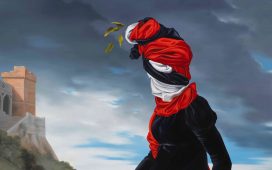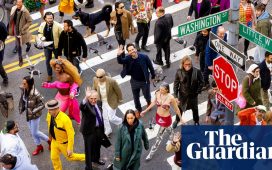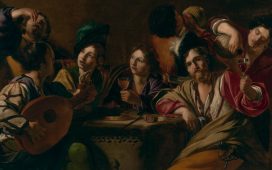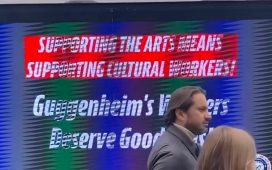The first monumental Desert X exhibition launches in an ancient valley in Saudi Arabia this week (31 January-7 March, free to the public). The 14 participating artists have been asked to reflect on the history of AlUla, a region in the northwest of the kingdom that has been described as an “open living museum”. The site-specific works are dotted around the oasis valley and sandstone mountains, an area inhabited thousands of years ago by the peoples of the Lihyan and Nabataean kingdoms.
Participants include Zarah Al Ghamdi and Nasser Al Salem of Saudi Arabia, Egyptian-born Wael Shawky, the Danish collective Superflex, and the Dubai-based artist eL Seed. Known for his contemporary Arabic calligraphy, eL Seed draws on AlUla’s key position on the “incense trade route”, which connected Asia, Africa and Europe, bringing spices and silk overland. “The scale of the work is crazy. It’s all about humility, the landscape makes me feel like a spot in the universe. I tried to avoid competing with the environment and wanted the work to blend in,” eL Seed says.
The Desert X sculpture biennial initially launched in the Coachella Valley in California in 2017. The curators of the new version include the founding Desert X director Neville Wakefield, along with Raneem Farsi and Aya Alireza, both from Saudi Arabia. Desert X AlUla has been organised in collaboration with the Royal Commission for AlUla, the Saudi governmental body led by Crown Prince Mohammad bin Salman.
When the initiative was first announced it was met with a barrage of criticism last year over the collaboration between a US organisation and Saudi Arabia, an undemocratic country that violates international human rights laws. “People tend to pre-judge things they haven’t yet had the opportunity to experience,” says Wakefield. “We live in binary times, when people are either isolationist or believe in the power of cultural dialogue. Art changes hearts and minds. Denying an entire population this opportunity is to be part of the problem not the solution.”
Desert X AlUla is part of a drive to promote the cultural credentials of Saudi Arabia, helping to diversify the economy and deliver a more “open” image of the country, in line with the government’s Vision 2030 plan. Crucially, AlUla will reopen its key heritage sites, including the Unesco World Heritage site comprising Hegra, Dadan, AlUla Old Town and Jabal ‘Ikmah in October.









